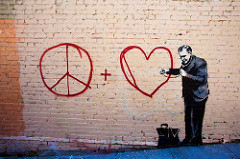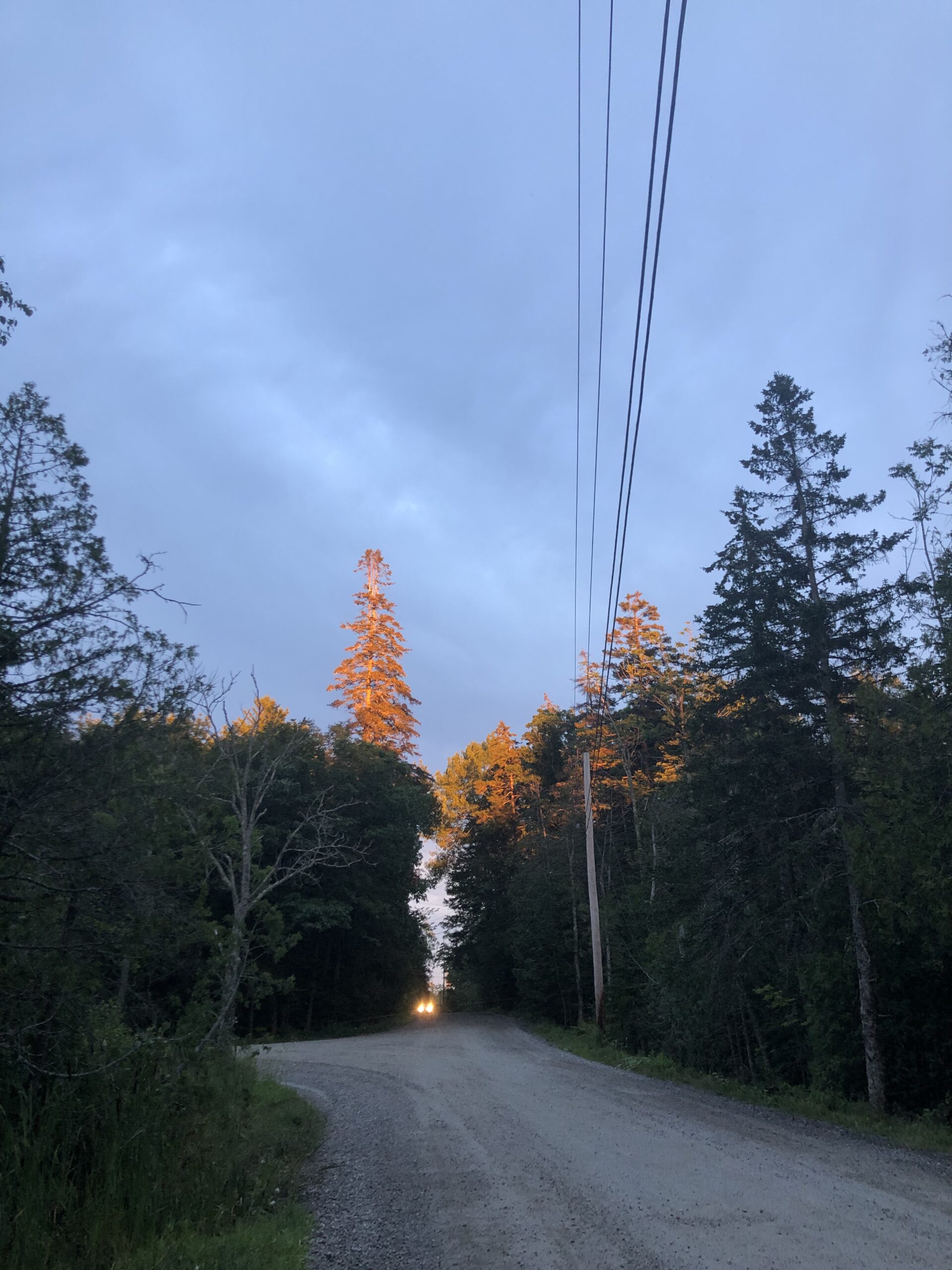By KAREN PRESS
1
A relief supply ship for the bombed citizens of Iraq
called Sir Galahad
arrives tomorrow in the port of Basra.
Oh where is the beautiful lady
who will come out of the charred crowd
to lay her long hair along the shore
and wave the green scarf of welcome?
How they dream themselves good,
the madmen of the West.
2
The poets gird their loins again.
Outrage. Metaphors. The assonance of keening.
There are enough poems lamenting war to last for eternity.
All we can offer are images of horror in modern dress,
all we can do is confirm that helplessness includes
life in a fine apartment overlooking cityscapes,
spin doctors, cell phones and cappuccinos
for the unexpectedly last time before the glass shatters
and the eyes are burnt beyond recognition.
Forgive us, people digging through your bombed houses
with wails as raw as each buried limb you glimpse,
forgive us for finding metaphors inside your torn shirts and
bleeding dogs.
Forgive us, captured American soldier, if we hear you
tell your captors “I come to fix broke stuff”
and find in your half-formed logic
the voice of a machine still being tested for defects.
Our words mean everything we’ve learned about them,
and it is right that we don’t have words for the feeling of being destroyed,
there should be no words for destruction,
it is the moment for silence
in every language in the world.
3
Raindrops stay on the leaves a long time.
The birds sip at them without breaking the sparkling nets.
The ground around every landmine holds its breath
for the moment when fire will explode its seeds into life.
Nature made everything, even the B-52 and George Bush.
Patterns of screaming children travel far into international airspace
melting the ice on every jet’s wings,
sending it in to land ahead of schedule.
4
In their different ways
a war-torn country
a war-torn province
a war-torn region
a war-torn community
a war-torn house
a war-torn friendship
a war-torn memory
a war-torn body
a war-torn poem
a war-torn understanding
a war-torn room
a war-torn tree
5
(Margin note:
something not mentioned in the reports
or seen in the photographs whose captions
misdirect your attention—
the child’s wounded body is always shaded by a man
crouching there with desperate eyes,
waving away insects or touching the bandages
as if there were something he could do
to mend the exploded flesh
and at funerals there are so many men
crying over the little body
even if they have locked their women inside houses and windowless clothing,
even if they carry guns and wear beards,
even if their turbans contain great hatred,
these men would give their lives to save this small child,
these men with broken hearts.)
6
Walking between George Bush and a full heart,
I choose the path of trees and cobbles
in a familiar city full of foreigners.
To be invisible in a place you know well
is the best kind of freedom.
There’s so much chatter in the world,
only silence now would change anything.
George Bush shadows me as I walk, complete
power and powerlessness on a street where trees do what the wind wants
and cobbles grow slowly softer in profile,
footstep by footstep.
Whether or not I love you, you’ll sleep well tonight.
In my heart too you’ll sleep well, close to me.
I’ll breathe in time to the wind.
George Bush passing through these hours
will leave only the lightest footprints.
7
On the record
the bombs kept falling
long after the journalists had left.
Off the record
he went out when he could
in the early morning hours
to watch the sky change colour undisturbed
and his wife sometimes joined him.
Once a reporter saw them walking, holding hands,
and he felt he should run after her
to explain.
8
Will the war be over
when people are dying of hunger instead of bomb strikes?
When the victors run out of new weapons to test?
When their radioactive debris has finished decaying on the battlefields?
When the sad little wingless men they bred in captivity
climb up on the podium
and announce that they are the leaders
of the new democracy?
The barbed wire around the US Consulate
will come down when the war is over.
We can stop praying and chanting outside the unphotographable building,
holding these placards that blow so wildly in the southeaster
we nearly get knocked down
when the war is over.
The oil price will stabilise when the war is over.
Holiday travel will be safe again when the war is over.
Everyone will be happy when the war is over,
and we can take photographs of ourselves smiling.
Karen Press most recent collection of poetry, Slowly, As If, was published in 2012.




